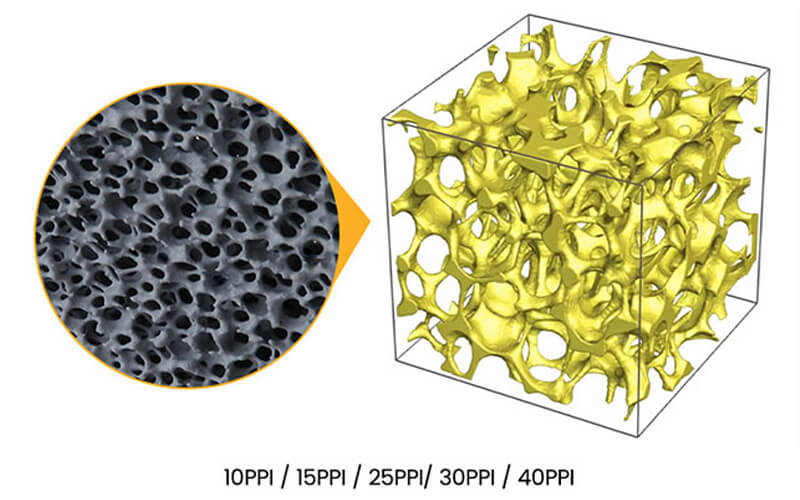Introduction:
Filtration plays a crucial role in numerous industries, ranging from water treatment to metal casting. As technology advances, the demand for more efficient and reliable filtration solutions continues to grow. One such innovation that has gained significant attention is the silicon carbide filter. With its exceptional filtration capacity, silicon carbide filters have revolutionized the way we remove impurities and contaminants from various substances.
Pore Structure and Size:
The filtration capacity of a silicon carbide filter is closely tied to its unique pore structure and size. These filters consist of a three-dimensional network of interconnected pores, forming a highly porous structure. The size of these pores determines the filtration capacity and the types of particles that can be effectively captured.

Silicon carbide filters are available in a range of pore sizes, typically measured in porosity or pores per inch (PPI). Higher PPI values indicate a greater number of pores within a given area, resulting in smaller pore sizes. Filters with smaller pore sizes have a higher filtration capacity as they can effectively capture smaller particles and impurities. This makes them suitable for applications where stringent filtration is required, such as the removal of fine particulates or microorganisms from liquids.
The filtration capacity of a silicon carbide filter is related to its pore size and structure. Silicon carbide filters have a unique cellular structure that consists of interconnected pores. The size of these pores determines the filtration capacity of the filter.
Silicon carbide filters are available in a range of pore sizes, typically measured in porosity or pores per inch (PPI). The higher the PPI value, the smaller the pore size and the higher the filtration capacity. Filters with higher PPI values can effectively capture smaller particles and impurities, resulting in a higher filtration efficiency.
The filtration capacity of a silicon carbide filter also depends on the specific application and the type of contaminants or impurities being filtered. Different industries and processes require different levels of filtration, and the appropriate pore size is selected accordingly.
It’s important to consult with the manufacturer or supplier of the silicon carbide filter to determine the optimal pore size and filtration capacity for your specific application. They can provide guidance based on their expertise and knowledge of the filter’s capabilities.

